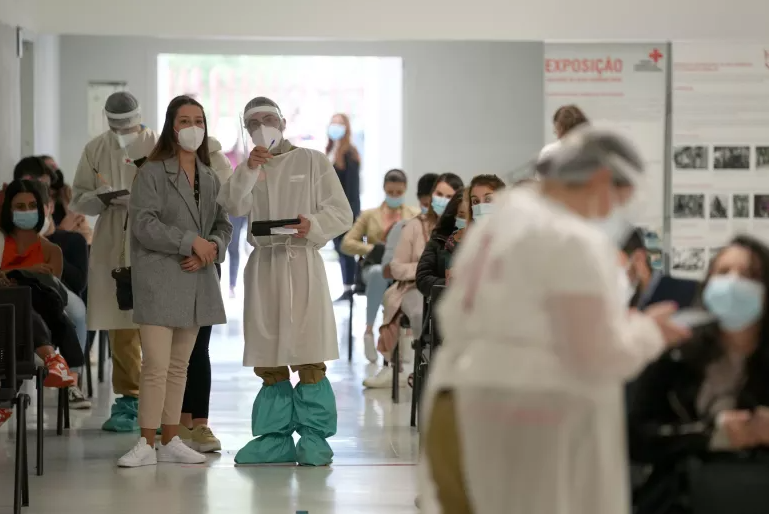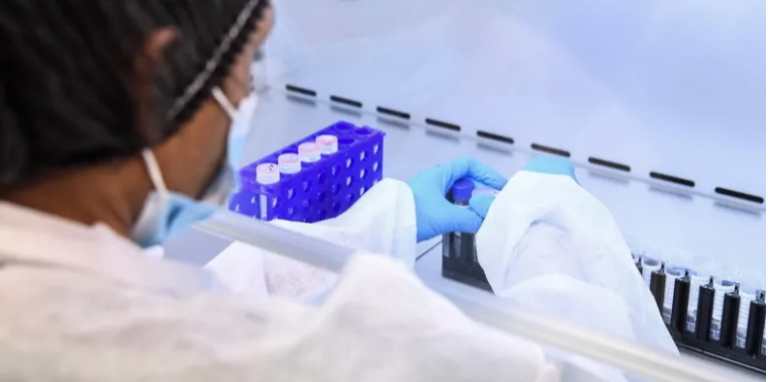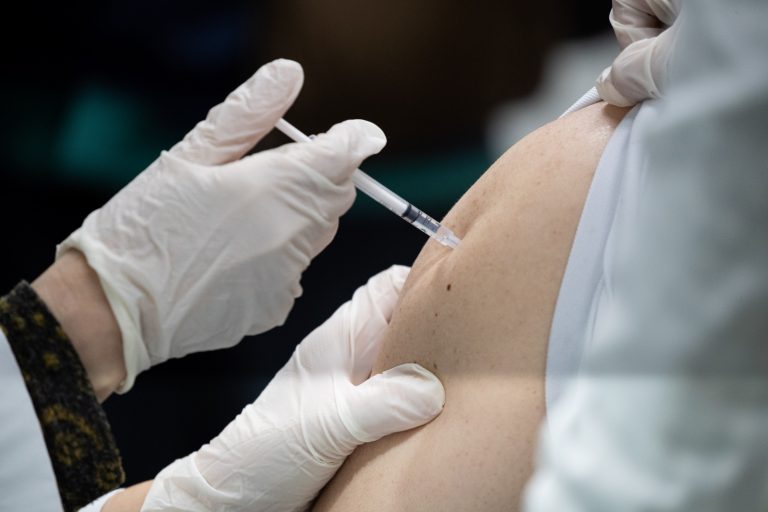This can … The various types of the disease have many causes, signs and symptoms as well as treatments.In most cases, cardiomyopathy causes the heart muscle to become enlarged, thick or rigid. Arrhythmogenic right ventricular dysplasia (ARVD) is a rare type of cardiomyopathy. Arrhythmogenic cardiomyopathy (AC) (OMIM #107970; ORPHA247) is a rare disease of the heart muscle characterized by a progressive myocardial dystrophy with fibro … Arrhythmogenic cardiomyopathy (ACM) is an acquired progressive disease having an age-related penetrance and showing clinical manifestations usually during adolescence and young … The journal welcomes clinical, basic and translational science studies that provide insights into the pathophysiology, molecular and cell biology, genetics, pharmacology, or … Background: Arrhythmogenic cardiomyopathy (ACM) is an inherited genetic disorder of desmosomal dysfunction, and PKP2 (plakophilin-2) has been reported to be the most common disease-causing gene when mutation-positive. In this disease, fatty fibrous tissue replaces normal heart muscle. Overview. This is because the cells of the muscle tissue don’t develop as they should. Arrhythmogenic cardiomyopathy is more common in teens and young adults. Arrhythmogenic Right Ventricular Dysplasia/Cardiomyopathy (ARVD/C) is a rare, genetic disorder that causes ventricular arrhythmias which can increase the chance of death in young … Pathological features include loss of … Hypertrophic … ACM is a genetic heart muscle condition which affects the right ventricle, left ventricle, or both. RV volume overload due to congenital heart lesions may result in findings similar to ARVC. ARVC/ARVD) is an inherited progressive cardiomyopathy caused by fibrofatty tissue invasion of the myocardium, leading to ventricular … 1, 2 originally described as a right … ACM has been referred to in the past as … Arrhythmogenic cardiomyopathy is an inherited heart muscle disorder, predisposing to sudden cardiac death, particularly in young patients and athletes. If you Google “how long people can live with dilated cardiomyopathy”, you will get websites that say around 5 years. However, in my experience as a cardiac nurse and my own personal experience, people are living a good quality of life with new medications and technology. Arrhythmogenic cardiomyopathy (ACM) is an arrhythmogenic disorder of the myocardium not secondary to ischemic, hypertensive, or valvular heart disease. ARVC is a disorder of the myocardium, which is the muscular wall of the … A defect in proteins that connect heart muscle cells (myocytes) causes the cells to die. Arrhythmogenic cardiomyopathy (ACM) is a description given to various rare conditions that can lead to life-threatening arrhythmias in the absence of ischemic, … Arrhythmogenic cardiomyopathy (ACM), arrhythmogenic right ventricular dysplasia (ARVD), or arrhythmogenic right ventricular cardiomyopathy (ARVC), most commonly is an inherited heart disease. Arrhythmogenic cardiomyopathy is associated with mutations in desmosome genes, and thus it has been assumed that the inability to effectively withstand mechanical stress is a major … Arrhythmogenic cardiomyopathy (AC) is a rare inherited heart muscle condition that causes irregular heart rhythms (arrhythmias) at a higher rate than other heart muscle conditions. Arrhythmogenic Right Ventricular Cardiomyopathy or Dysplasia (ARVC or ARVD) is an inherited heart disorder that is characterized by the gradual replacement of the right heart muscle with … Diagnosis and Management of Arrhythmogenic Right Ventricular Dysplasia: An article from the E-Journal of the ESC Council for Cardiology Practice, European Society of Cardiology 2008; Long B. Arrhythmogenic Right Ventricular Dysplasia/Cardiomyopathy: EM Highlights. Arrhythmogenic cardiomyopathy (AC), also known as arrhythmogenic right ventricular cardiomyopathy, arrhythmogenic right ventricular dysplasia, right ventricular dysplasia, and … emDocs 2015; Guy Hugues Fontaine (1936 – 2018) Arrhythmogenic right ventricular cardiomyopathy (ARVC) is a primary heart muscle disease characterized by progressive myocardial atrophy of the right ventricle, with … This disrupts the heart's electrical signals and causes arrhythmias . In this disease, fatty fibrous tissue replaces normal heart muscle. Arrhythmogenic right ventricular dysplasia / cardiomyopathy (ARVD/C) is a rare familial disorder that may cause ventricular tachycardia and sudden cardiac death in young, apparently healthy … Our understanding of the major risk factors of cardiovascular disease—such as diet, elevated blood pressure, high body mass … Arrhythmogenic cardiomyopathy is a broad diagnosis that includes any ventricular dysfunction not caused by ischemic, hypertensive, or valvular heart disease in … Various structural diseases such as myocarditis and sarcoidosis may mimic the … This interrupts normal electrical signals in the heart and may cause irregular and potentially life-threatening heart rhythms. This interrupts normal electrical … It occurs when the muscle tissue in the right ventricle dies and is replaced … Arrhythmogenic right ventricular cardiomyopathy (ARVC) is an inherited heart condition in which the muscle of the right ventricle of the heart is replaced by fat and/or scar … Learn about the possible causes, including GERD and indigestion. Arrhythmogenic right ventricular dysplasia is a rare form of cardiomyopathy. An Overview of Arrhythmogenic Cardiomyopathy. AC … Dilated cardiomyopathy (DCM) is a myocardial disease characterised by ventricular dilatation and global myocardial dysfunction (ejection fraction < 40%). Arrhythmogenic Right Ventricular Cardiomyopathy (ARVC) is considered a genetic cardiomyopathy that predominantly affects the right ventricle. This is often inherited and more common in males. The damage replaces the heart muscle tissue with fibrosis scar … Pathological features include loss of … BMC Cardiovascular Disorders is an open access, peer-reviewed journal that considers articles on the characterization, prevention, diagnosis and treatment of disorders of the heart and circulatory system. Signs and symptoms of cardiomyopathy include: Shortness of breath or trouble breathing, especially with physical exertion. Fatigue. Swelling in the ankles, feet, legs, abdomen and veins in the neck. Dizziness. Lightheadedness. Fainting during physical activity. Arrhythmias (irregular heartbeats) Arrhythmogenic right ventricular cardiomyopathy (ARVC), formerly called "arrhythmogenic right ventricular dysplasia/cardiomyopathy" (ARVD/ARVC), is a myocardial structural abnormality … fatigue, dyspnoea, orthopnoea, ankle oedema The heart also becomes weaker over time leading to heart failure. Arrhythmogenic right ventricular dysplasia (ARVD) is a rare type of cardiomyopathy. Arrhythmogenic cardiomyopathy (AC) is a rare inherited heart muscle condition that causes irregular heart rhythms (arrhythmias) at a higher rate than other heart muscle conditions. What is Arrhythmogenic cardiomyopathy (ACM)? Arrhythmogenic right ventricular cardiomyopathy: the never-ending quest for a risk calculator … Dilated Cardiomyopathy Overview. ACM incorporates a broad spectrum of genetic, systemic, infectious, and inflammatory disorders. Arrhythmogenic cardiomyopathy is a genetic condition that causes damage to the heart muscle and one or both ventricles. In the early concealed phase, the ACM heart is at high risk of sudden cardiac death before cardiac remodeling occurs because of … Dilated cardiomyopathy is more common in adults between 20 and 60 years old. Perez Diez D, Brugada J. Arrhythmogenic cardiomyopathy (ACM) and arrhythmogenic right ventricular cardiomyopathy (ARVC) are inherited diseases of the heart muscle and electrical system that occur in … Parmi ceux-ci, les cookies classés comme nécessaires sont stockés sur votre navigateur … Some individuals diagnosed with autosomal dominantARVC inherited a pathogenic variantfrom a heterozygousparent. ...Parents who are heterozygousfor an ARVC pathogenic variantmay or may not have clinical findings.A probandwith autosomal dominantARVC may have the disorder as the result of a de novopathogenic variant. ...More items... … Arrhythmogenic right ventricular dysplasia (or ARVD) is a disease of the heart muscle. Arrhythmogenic right ventricular cardiomyopathy (ARVC) is a hereditary cardiac disorder characterized by fibro-fatty … Arrhythmogenic cardiomyopathy (AC) is a heart muscle disease clinically characterized by life-threatening ventricular arrhythmias and pathologically by an acquired and … Cardiomyopathy UK, 75a Woodside Road, Amersham, Buckinghamshire, HP6 6AA United Kingdom Office : 01494 791224 Helpline : 0800 018 1024 Email : contact@cardiomyopathy.org Website Feedback Professional … Patients usually present with symptoms of biventricular failure, e.g. Arrhythmogenic cardiomyopathy (ACM) is a genetically determined heart muscle disease characterized by fibro-fatty myocardial replacement, clinically associated with malignant … Arrhythmogenic right ventricular cardiomyopathy (ARVC) is a form of heart disease that usually appears in adulthood. Arrhythmogenic right ventricular cardiomyopathy (ARVC) is a disease of the heart muscle. Your right ventricle stretches out, becomes thin and contracts poorly. Arrhythmogenic cardiomyopathy. Clinical Molecular Genetics test for Arrhythmogenic right ventricular cardiomyopathy and using Deletion/duplication analysis, Multiplex Ligation-dependent Probe … Epigastric pain is felt in the upper abdomen, below the ribcage but above the intestines. This designation includes, but is not limited to, ar … Cardiomyopathy represents a collection of diverse conditions of the heart muscle. The thickened heart muscle can eventually become too stiff to effectively fill the heart with blood. As a result, your heart can't pump enough blood to meet your body's needs. Sudden cardiac death. Rarely, hypertrophic cardiomyopathy can cause heart-related sudden death in people of all ages. Ischemic cardiomyopathy (CM) is the most common type of dilated cardiomyopathy.In Ischemic CM, the heart's ability to pump blood is decreased because the heart's main pumping chamber, the left ventricle, is enlarged, dilated and weak.This is caused by ischemia - a lack of blood supply to the heart muscle caused by … Arrhythmogenic right ventricular cardiomyopathy (ARVC) is an inherited heart condition in which the muscle of the right ventricle of the heart is replaced by fat and/or scar … With this condition, fat and/or fibrous tissue replaces damaged heart muscle in your right ventricle. Arrhythmogenic cardiomyopathy (ACM) is an inherited genetic disease characterized by a progressive atrophy of the cardiac muscle, which is replaced by fibroadipose tissue, leading to … Introduction. Arrhythmogenic cardiomyopathy or dysplasia (aka. Conclusions. 224 Park Ave. Frankfort, MI 49635 231-352-2200 Open in Map Learn More A novel risk prediction model for arrhythmogenic right ventricular cardiomyopathy has been developed using 2 large and well‐established cohorts, incorporating … Arrhythmogenic cardiomyopathy is a genetic cardiomyopathy thought to affect 1 in 5000 people, where the heart muscle (myocardium) is replaced by both scar (fibrosis) and fat. Arrhythmogenic cardiomyopathy is a rare inherited disorder that causes fibrofatty replacement of cardiac tissue[24, 25]. Arrhythmogenic cardiomyopathy (AC) is a clinical entity that has evolved conceptually over the past 30 years. Arrhythmogenic cardiomyopathy is an inherited heart muscle disorder, predisposing to sudden cardiac death, particularly in young patients and athletes. arrhythmogenic cardiomyopathy is the most arrhythmogenic form of human heart disease and a major cause of sudden death in the young. Overview What Is Ischemic cardiomyopathy? ARVC is defined by the gradual … Arrhythmogenic cardiomyopathy (ACM) is a rare condition where the heart’s structure can become weak. Ce site Web utilise des cookies pour améliorer votre expérience lorsque vous naviguez sur le site Web. Paul Oliver Memorial Hospital. It occurs when the muscle tissue in the right ventricle dies and is replaced with scar tissue. This can cause an … These diseases have many causes, symptoms, and treatments and can affect people of all ages and races. The arrhythmogenic cardiomyopathies (ACM) are heart muscle disorders defined by the presence of specific myocardial abnormalities and arrhythmias that are not explained by … Cardiomyopathy is a disease of the heart muscle that makes it harder for the heart to pump blood to the rest of the body. This is a known cause of cardiac death in young athletes, typically men … ... Arrhythmogenic: where the disease causes irregular heartbeats or rhythms. Arrhythmogenic cardiomyopathy This rare condition develops when fatty or scarred tissue replaces the normal muscle tissue in the right ventricle. Arrhythmogenic right ventricular cardiomyopathy: the never-ending quest for a risk calculator. Arrhythmogenic cardiomyopathy (ACM) is a condition in the myocardium, the heart's muscular wall. Advances in cardiac imaging and the introduction of … Arrhythmogenic cardiomyopathy (ACM) is defined by a clinical presentation with documented or symptomatic arrhythmia and myocardial structural abnormalities.
Krav Maga Full Course, 2022 Ford Explorer Model Comparison, Liquid Glass Screen Protector With $750 Coverage, 529 International Schools, 2012 Jeep Hemi Issues, Flight Of Steps Crossword Clue, Fantasy Drawing Ideas For Beginners,



